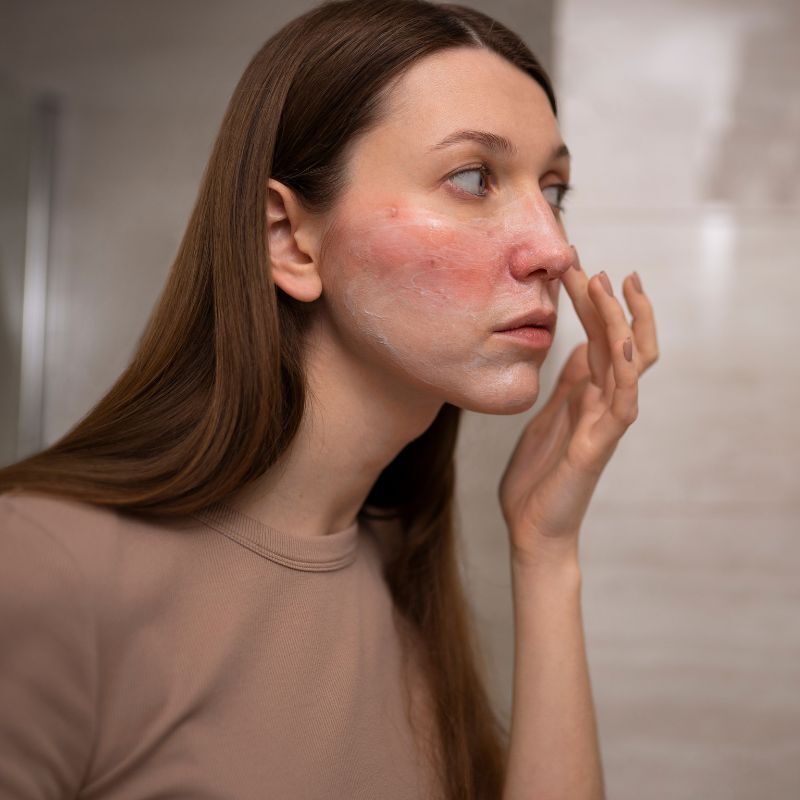Inflammation

Calm & Soothe Irritated Skin with Effective Skin Care for Inflammation
Explore products designed to calm redness, irritation, and sensitivity for a healthier, more balanced complexion
There are no products listed under this category.
Every once in a while, you wake up and your skin just seems…angry. It’s pink, it’s puffy, and it’s not a fashion statement you want to make. That’s inflammation, an immune reaction where your body sends blood cells to the area where it thinks there’s an intruder or a threat to fight off. Sometimes it’s more than every once in a while, though, and if you’re having chronic or frequent skin inflammation, there are skin care products that give your skin the chill pill it needs.
What Causes Skin Inflammation?
As we noted, skin inflammation is an immune response. But what triggers this response, exactly? It can be any number of things but the typical culprits are:
- Harsh chemicals or other irritants
- Allergens, either topical or internal like food allergens
- Bacteria or infections
- Immune conditions that make your body think there’s a threat when there isn’t
- Chronic inflammatory skin conditions
How Do You Know if You Have an Inflammatory Skin Condition?
Most of the time, skin inflammation is just a one-off thing. Maybe you wore some new makeup that didn’t agree with your skin so your skin is inflamed the next day, for example. But if you’re seeing inflammation on a regular basis, how do you know if it’s because your skin is being re-exposed to an irritant or if you have a chronic inflammatory condition?
The only way to know for certain is to see your dermatologist, but you can get some clues by looking at your other symptoms. For example, if your inflammation is in flaky patches, it could be psoriasis. If you have inflammation with dryness, it may be eczema. If you have inflammation with acne-like bumps, it could be rosacea. If you suspect any of these, head to your dermatologist and they’ll help you get to the bottom of it and make a treatment plan.
How Do You Reduce Skin Inflammation?
Aside from visiting your dermatologist, there are plenty of ways to ease skin inflammation at home too.
Start with figuring out what’s causing your inflammation if possible. You might do this by taking a skin care product or makeup product out of your routine for a while, one by one, to see if one of these products is causing your inflammation.
Other than finding and eliminating the triggers for your inflammation, these tips can help too:
- Replace your harsh skin care products with alternatives that are made for sensitive skin
- Moisturize twice a day - dry skin is more prone to inflammation
- Manage your stress - while stress alone doesn’t usually cause skin inflammation, it does make your body more prone to inflammation so it could be making your skin issues worse
- Step up your skin hygiene practices to make sure you aren’t putting bacteria on your skin, like washing your makeup brushes every week or two, replacing expired skin care and makeup products, and cleansing your skin twice a day
Skin inflammation can be tough to tame but when you do, there’s healthy and refreshed skin waiting for you.
